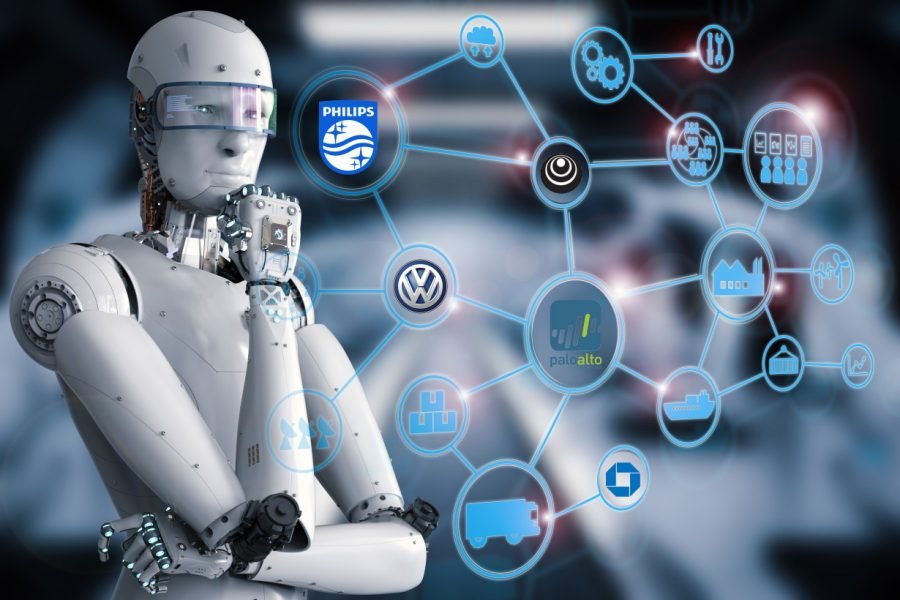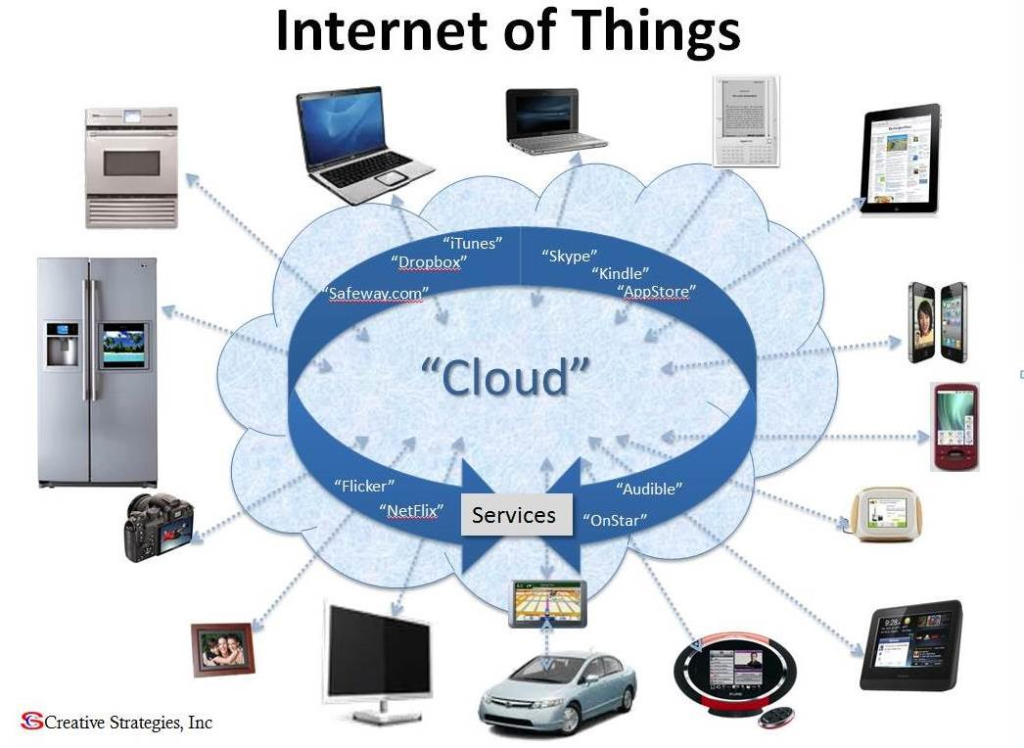Key Takeaways:
- Stay updated with the latest technologies in the software industry to remain competitive.
- Keep an eye on software industry updates to stay ahead of the curve.
- Understand the top tech in the software sector to leverage it to your advantage.
Innovative Technology Transforming the Software Industry
The software industry is constantly evolving, driven by the rapid advancements in innovative technology. From the emergence of cutting-edge software development tools to the integration of artificial intelligence (AI) and machine learning (ML), the software sector is undergoing a profound transformation.
1. Latest IT Trends
The software industry is heavily influenced by the latest IT trends, which have the potential to disrupt traditional practices and open new doors of opportunity. Cloud computing, edge computing, AI, and the Internet of Things (IoT) are just a few of the IT trends shaping the future of software development, deployment, and management.
2. Innovative Technologies
The software development landscape is witnessing a steady stream of innovative technologies that are pushing the boundaries of what’s possible. Blockchain, augmented reality (AR), virtual reality (VR), and quantum computing are revolutionizing various sectors and finding applications in software development. Keeping up with these cutting-edge technologies and exploring their potential can give software companies a significant competitive edge.
3. Software Trends
The software industry is also influenced by various software trends that encompass evolving practices, methodologies, and approaches. Agile development, DevOps, low-code/no-code development, and microservices architecture are notable software trends that are gaining traction. Understanding and incorporating these trends into software development processes can lead to faster, more efficient, and innovative software solutions.
“Innovation distinguishes between a leader and a follower.” – Steve Jobs
Cutting-Edge Software Advancements
The software industry is witnessing a wave of cutting-edge advancements that are revolutionizing the way software is developed, deployed, and utilized. These advancements are driven by the constant innovation in software development tools and the integration of AI and machine learning.
One key driver of these advancements is the rise of low-code and no-code platforms, which allow developers to create applications with minimal coding knowledge. This democratization of development has opened up new possibilities and accelerated the pace of innovation in the industry.

Advancements in Software Development Tools
The availability of cutting-edge software development tools has transformed the way developers work. These tools enable them to build software solutions faster and with greater precision, ultimately delivering value to their clients.
In addition to low-code and no-code platforms, developers can access various integrated development environments (IDEs), version control systems, and project management tools. These tools facilitate collaboration, streamline workflows, and improve the overall development experience.
Moreover, the emergence of cloud computing has greatly impacted software development. Cloud-based IDEs and deployment platforms have made it easier for developers to build, test, and deploy scalable and cost-effective software applications, further accelerating the pace of innovation.
Latest Trends and Technologies
Let’s take a closer look at some of the latest trends and technologies that are driving cutting-edge software advancements:
| Trend/Technology | Description |
| Containerization | Technologies like Docker and Kubernetes are revolutionizing software deployment by enabling developers to package applications into isolated containers, ensuring consistency and scalability. |
| Microservices | The adoption of microservices architecture is gaining momentum, allowing developers to build complex applications by breaking them into smaller, independent services. |
| DevOps | Integrating development and operations (DevOps) practices has become essential for software development teams, emphasizing collaboration, automation, and continuous delivery. |
| Blockchain | Blockchain technology’s decentralized and secure nature is finding applications beyond cryptocurrencies, such as in smart contracts, supply chain management, and secure data storage. |
These trends and technologies showcase the cutting-edge advancements shaping the software industry and transforming the way software solutions are developed, deployed, and utilized.
Emerging Technologies in Software Development
The software industry is constantly evolving, and staying ahead of the curve requires embracing the latest emerging technologies that are shaping the future of software development.
Trend 1: Artificial Intelligence and Machine Learning
Artificial Intelligence (AI) and Machine Learning (ML) are revolutionizing the software development landscape. These technologies enable software applications to analyze vast amounts of data, automate processes, and make intelligent decisions, leading to more efficient, personalized, and adaptive software solutions.
Trend 2: Internet of Things (IoT)
The Internet of Things (IoT) is another emerging technology that is transforming the software industry. IoT refers to the network of interconnected devices and sensors that collect and exchange data, enabling seamless integration between the physical and digital worlds. This technology is opening up new possibilities for software applications, from smart homes and wearable devices to industrial automation and smart cities.
Trend 3: Blockchain
Blockchain technology has gained significant attention in recent years, and its potential extends beyond cryptocurrencies. Blockchain’s decentralized and secure nature makes it an ideal technology for industries that require secure data storage and transactional integrity, such as supply chain management, healthcare, and finance.
As the demand for more efficient, secure, and innovative software solutions increases, the software development landscape will continue to evolve. Embracing emerging technologies like AI, IoT, and blockchain is crucial for software companies to stay ahead of the competition and deliver high-quality, cutting-edge software solutions.

Revolutionizing User Experience with New Software Technologies
The rapid advancement of innovative technology has revolutionized the user experience in the software industry. Cutting-edge software interfaces, AI and machine learning, and data analytics are just a few of the technologies that are transforming how users interact with software applications.
Enhancing Collaboration and Communication
New software technologies are also improving collaboration and communication within business environments. Cloud-based solutions, for instance, enable seamless collaboration among team members, allowing them to work on projects simultaneously and share real-time updates. This fosters better communication, teamwork, and improved productivity.
“The integration of cloud-based collaboration tools has revolutionized the way teams interact and work together. By providing a centralized platform for communication and file sharing, businesses can now streamline workflows and eliminate the inefficiencies of traditional email chains and file exchanges.” – Jane Adams, CEO of TechSolutions
The Future of User Experience
Looking ahead, the continued advancements in software innovation will undoubtedly reshape the future of user experience. Emerging technologies such as virtual reality (VR) and augmented reality (AR) are poised to redefine how users interact with software applications, immersing them in virtual environments and creating truly immersive experiences.
Future Technology Ideas for the Software Industry
As the software industry continues to evolve, businesses must explore innovative ideas and embrace emerging technologies to stay competitive. Here are some future technology ideas that could revolutionize the software industry:
Incorporating Artificial Intelligence (AI) and Machine Learning (ML)
The integration of AI and ML technologies holds tremendous potential for the software industry. These intelligent systems can automate repetitive tasks, improve software efficiency, and provide personalized experiences, transforming the way software solutions are developed and utilized.
Advancements in Virtual and Augmented Reality
Virtual Reality (VR) and Augmented Reality (AR) are poised to reshape the software industry by creating immersive experiences and enhancing user interactions. As these technologies advance, software developers can explore innovative ways to leverage them and provide users with extraordinary experiences across various sectors, including gaming, education, healthcare, and design.
Blockchain Technology for Secure Transactions
Blockchain technology can potentially transform the software industry beyond its current applications in cryptocurrencies. By offering enhanced security and transparency, blockchain can be integrated into software solutions to ensure safe and reliable data sharing and storage, revolutionizing various industries.
Embracing the Internet of Things (IoT)
The Internet of Things (IoT) continues to expand its influence, connecting various devices and enabling efficient data transfer. By incorporating IoT technologies, software developers can build intelligent systems, streamline processes, and improve decision-making capabilities, unlocking new possibilities for the software industry.
“The future of the software industry lies in embracing new ideas, exploring emerging technologies, and staying adaptable in the face of change.”

Exploring the Latest Software Industry Research
Staying informed about the latest software industry research is crucial for businesses to remain competitive and capitalize on emerging trends and technologies. Let’s dive into the world of software industry research and uncover the latest advancements and insights.
Software Industry Research Insights
Recent studies from prominent research institutions and industry thought leaders provide valuable insights into the future of the software industry. These insights cover the latest software industry updates, explore emerging technologies, and shed light on the top tech in the software sector.
Exploring Emerging Technologies
The software industry is constantly evolving, and it’s essential to keep up with the emerging technologies that are revolutionizing the sector. From AI and machine learning to blockchain and the Internet of Things (IoT), understanding the latest tech trends can give businesses a competitive edge in the market.
Leveraging AI and Machine Learning in Software Development
The integration of artificial intelligence (AI) and machine learning (ML) is transforming the software development landscape, empowering developers to automate tasks, enhance efficiency, and create more intelligent software solutions.
Benefits of Leveraging AI and ML in Software Development
AI and ML technologies offer numerous benefits in software development, including:
- Enhanced automation of repetitive tasks
- Improved accuracy and efficiency in software development processes
- Ability to analyze and make predictions based on large datasets
- Optimized software performance and user experiences
- Facilitation of adaptive and intelligent software solutions
Real-World Applications
The application of AI and ML in software development is widespread, spanning various industries and sectors. Some real-world examples include intelligent virtual assistants, recommendation systems, fraud detection systems, and object recognition in autonomous vehicles.
Automation and Efficiency in Software Development Processes
Automation and efficiency are crucial factors in modern software development, enabling teams to streamline their workflows, enhance productivity, and deliver software solutions faster and more reliably.
The Role of Software Development Tools
Software development tools play a vital role in automating repetitive tasks, improving collaboration, and enhancing overall efficiency. These tools, such as IDEs, version control systems, and project management tools, facilitate seamless collaboration and streamline development processes.
Streamlining Software Development Processes
Automation in software development extends beyond just coding. Continuous Integration/Continuous Deployment (CI/CD) pipelines and containerization technologies like Docker enable developers to automate the build, test, and deployment processes, ensuring faster and more frequent software releases.
Benefits of Automation and Efficiency
Implementing automation and efficiency measures in software development processes brings numerous benefits, including:
- Increased developer productivity and reduced risk of human error
- Faster project delivery and reduced time-to-market
- Improved software quality and enhanced customer satisfaction
Sustainability and Green Tech in the Software Industry
As the world becomes more conscious of environmental sustainability, the software industry is also embracing green tech solutions and sustainable practices to minimize its ecological footprint.
Companies are adopting AI and machine learning-driven solutions to optimize energy consumption and resource utilization, while also developing eco-friendly software applications and platforms that promote sustainable practices among users.
The software development industry is actively contributing to a more sustainable future by leveraging innovative technologies, software trends, and emerging tech to reduce its carbon footprint and foster a greener ecosystem.
Security and Privacy in Software Development
Security and privacy are paramount concerns in software development, as the industry faces an ever-evolving landscape of cyber threats and data breaches.
Secure Coding Practices
Implementing secure coding practices is crucial to mitigating vulnerabilities and reducing the risk of exploitation. Developers must adhere to best practices and utilize techniques that safeguard sensitive user data.
Encryption and Data Protection
Robust encryption and data protection measures are essential in software development. Developers should employ advanced encryption algorithms to secure sensitive data at rest and in transit, ensuring the privacy and integrity of user information.
Access Control and Authentication
Software solutions should incorporate robust access control and authentication mechanisms to restrict access to authorized individuals and verify user identities, preventing unauthorized access and protecting sensitive data.
Regular Security Audits and Penetration Testing
Performing regular security audits and penetration testing is vital to identify potential vulnerabilities and assess the effectiveness of security measures in software systems, allowing developers to proactively address security weaknesses.
By embracing innovative technology, leveraging top tech in the software sector, and utilizing advanced software development tools, the industry can ensure the highest levels of security and privacy for its software solutions, building trust and credibility among users.

Conclusion
The software industry is undergoing a transformative period, driven by the constant emergence of innovative technologies, cutting-edge advancements, and evolving industry trends. By staying informed about the latest software industry updates, embracing emerging technologies, and leveraging the top tech in the software sector, businesses can position themselves at the forefront of this dynamic landscape.
As the demand for more efficient, secure, and personalized software solutions continues to grow, the future of the software industry holds immense potential. By exploring future technology ideas, investing in sustainability and green tech, and ensuring robust security and privacy measures, software companies can unlock new opportunities and deliver exceptional value to their customers.
In the ever-evolving world of software, the key to success lies in adaptability, innovation, and a relentless pursuit of cutting-edge advancements. By embracing this mindset, businesses can thrive in the rapidly changing software industry and shape the future of technology.
FAQ
What are the top software industry tech trends for 2024? The top software industry tech trends for 2024 include the integration of artificial intelligence (AI) and machine learning (ML), the adoption of blockchain technology, the growth of low-code and no-code development platforms, and the increasing focus on cybersecurity and data privacy.
How is innovative technology transforming the software industry? Innovative technology is transforming the software industry by driving new software trends and innovations. It enables the development of more efficient and sophisticated software solutions, enhances user experiences, and improves productivity in software development processes.
What are some cutting-edge software advancements? Some cutting-edge software advancements include cloud computing, big data analytics, and containerization technologies. Additionally, advancements in software development tools, such as integrated development environments (IDEs) and automated testing frameworks, are revolutionizing how software is built and deployed.
What are the emerging technologies in software development? Emerging technologies in software development include augmented reality (AR) and virtual reality (VR) applications, the Internet of Things (IoT) platforms, and progressive web applications (PWAs). These technologies are revolutionizing software development by introducing new ways to interact with software and expanding its capabilities.
How are new software technologies revolutionizing user experience? New software technologies are revolutionizing user experience by offering personalized and intuitive interfaces, seamless integration across devices and platforms, and enhanced accessibility features. These technologies also enable the development of highly interactive and immersive software experiences.
What are some future technology ideas for the software industry? Some future technology ideas for the software industry include the widespread adoption of edge computing, the development of quantum computing applications, and the integration of artificial intelligence and machine learning in various software domains, such as healthcare, finance, and transportation.
How is AI and machine learning being leveraged in software development? AI and machine learning are being leveraged in software development to automate routine tasks, improve software performance and scalability, and provide intelligent data analytics. These technologies are revolutionizing software development, making it faster, more accurate, and more efficient.
How is automation and efficiency improving software development processes? Automation and efficiency improve software development processes by streamlining repetitive tasks, aiding in code refactoring and optimization, and accelerating the software delivery lifecycle. Automated testing, continuous integration, and deployment pipelines are examples of automation tools and processes that enhance efficiency in software development.
How are sustainability and green tech being integrated into the software industry? Sustainability and green tech are being integrated into the software industry by developing energy-efficient software solutions, using eco-friendly data centers and cloud infrastructure, and promoting sustainable software development practices. This integration aims to reduce the software’s environmental impact and promote sustainability initiatives.
How is security and privacy ensured in software development? Security and privacy in software development are ensured through advanced encryption techniques, secure coding practices, and vulnerability management processes. Additionally, adopting secure development frameworks and security testing tools helps identify and mitigate potential security vulnerabilities.



